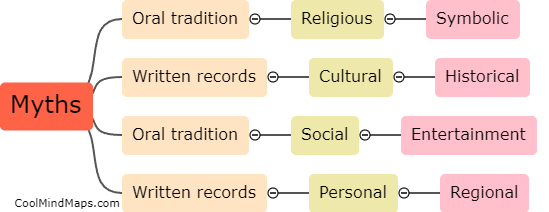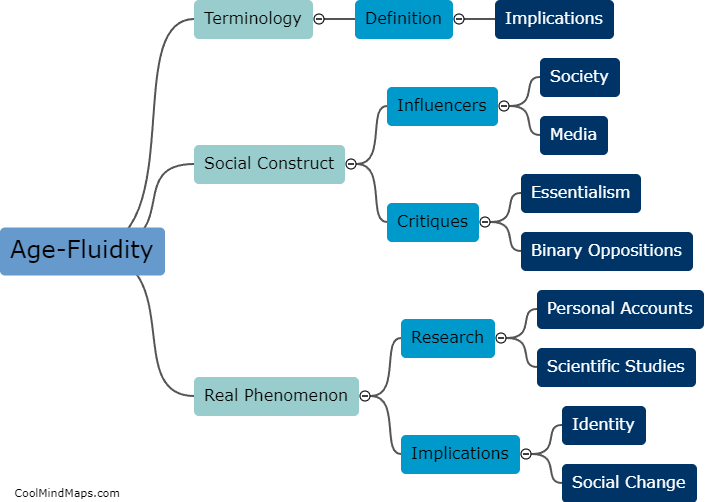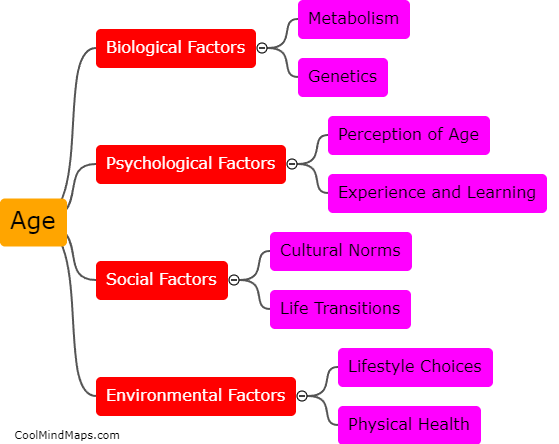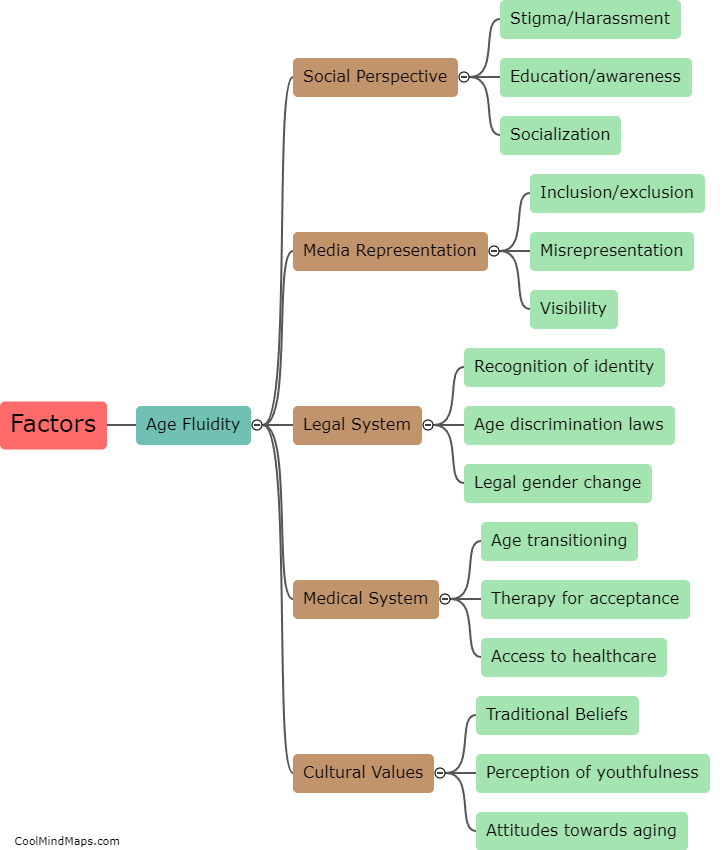How is age fluidity perceived in society?
Age fluidity, the idea that a person's age is not a fixed and unchangeable characteristic but rather a fluid concept that can change over time, is becoming increasingly accepted in society. Some argue that age is just a number and that a person's physical age does not necessarily correspond with their internal age or the age they feel. Others, however, view age fluidity as a threat to traditional societal norms and hierarchies. Ageism, discrimination based on a person's age, is still prevalent in many sectors of society and can make it difficult for individuals to embrace their age fluidity. Nonetheless, as more people challenge traditional notions of aging, age fluidity is slowly becoming more accepted and normalized in society.

This mind map was published on 2 June 2023 and has been viewed 150 times.











